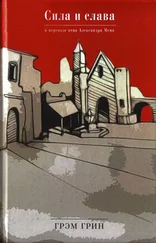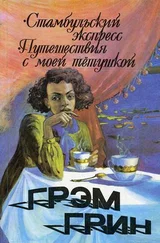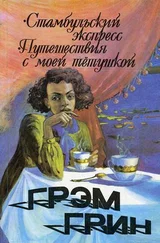Грэм Грин - The Comedians
Здесь есть возможность читать онлайн «Грэм Грин - The Comedians» весь текст электронной книги совершенно бесплатно (целиком полную версию без сокращений). В некоторых случаях можно слушать аудио, скачать через торрент в формате fb2 и присутствует краткое содержание. Год выпуска: 1966, Жанр: Классическая проза, на английском языке. Описание произведения, (предисловие) а так же отзывы посетителей доступны на портале библиотеки ЛибКат.
- Название:The Comedians
- Автор:
- Жанр:
- Год:1966
- ISBN:нет данных
- Рейтинг книги:3 / 5. Голосов: 1
-
Избранное:Добавить в избранное
- Отзывы:
-
Ваша оценка:
- 60
- 1
- 2
- 3
- 4
- 5
The Comedians: краткое содержание, описание и аннотация
Предлагаем к чтению аннотацию, описание, краткое содержание или предисловие (зависит от того, что написал сам автор книги «The Comedians»). Если вы не нашли необходимую информацию о книге — напишите в комментариях, мы постараемся отыскать её.
The Comedians — читать онлайн бесплатно полную книгу (весь текст) целиком
Ниже представлен текст книги, разбитый по страницам. Система сохранения места последней прочитанной страницы, позволяет с удобством читать онлайн бесплатно книгу «The Comedians», без необходимости каждый раз заново искать на чём Вы остановились. Поставьте закладку, и сможете в любой момент перейти на страницу, на которой закончили чтение.
Интервал:
Закладка:
The two men in black returned slowly up the hill. They had an intimidated air. I had time to look at the coffin — it was a luxurious one, worthy of the hearse, but it bore only a single wreath of flowers and a single card; the ex-Minister was doomed to have an interment almost as lonely as his death. The two men who had now rejoined us were almost indistinguishable one from the other, except that one was a centimetre or so the taller — or perhaps it was his hat. The taller one explained, 'We have been to the lower road-block, Madame Philipot. They say we cannot return with the coffin. Not without the authorization of the authorities.'
'What authorities?' I asked.
'The Secretary for Social Welfare.'
We all with one accord looked at the handsome coffin with its gleaming brass handles.
'There is the Secretary for Social Welfare,' I said.
'Not since this morning.'
'Are you Monsieur Hercule Dupont?'
'I am Monsieur Clйment Dupont. This is Monsieur Hercule.' Monsieur Hercule removed his top-hat and bowed from the hips.
'What's happening?' Mr Smith asked. I told him.
'But that's absurd,' Mrs Smith interrupted me. 'Does the coffin have to wait here till some fool mistake has been cleared up?'
'I'm beginning to fear it was no mistake.'
'What else could it be?'
'Revenge. They failed to catch him alive.' I said to Madame Philipot, 'They will arrive soon. That's certain. Better go to the hotel with the child.'
'And leave my husband stranded by the road? No.'
'At least tell your child to go and Joseph will give him a vanilla ice.'
The sun was almost vertically above us now: splinters of light darted here and there from the glass of the hearse and the bright brass-work of the coffin. The driver turned off his engine and we could hear the sudden silence extending a long long way to where a dog whined on the fringes of the capital.
Madame Philipot opened the taxi door and lifted the little boy out. He was blacker than she was and the whites of his eyes were enormous like eggs. She told him to find Joseph and his ice, but he didn't want to go. He clung to her dress.
'Mrs Smith,' I said, 'take him to the hotel.'
She hesitated. She said, 'If there's going to be trouble, I think I ought to stay here with Madame Phili — Phili — you take him, dear.'
'And leave you, dear?' MrSmith said. 'No.'
I hadn't noticed the taxi-drivers where they sat motionless in the shadow of the trees. Now, as though they had been exchanging signals with each other while we talked, they started simultaneously to life. One swung his taxi out of the drive, the other reversed and turned. With a grinding of gears they skidded together like decrepit racing-motorists down the hill towards Port-au-Prince. We heard the taxis halt at the road-block and then start off again and fade into the silence.
Monsieur Hercule Dupont cleared his throat. He said, 'You are quite right. I and Monsieur Clйment will take the child …' Each seized a hand, but the little boy dragged to get away.
'Go chйri,' his mother said, 'and find a vanilla ice.'
'Avec de la crйme au chocolat?'
'Oui, oui, bien sыr, avec de la crйme au chocolat.'
They made an odd procession, the three of them going up the drive under the palms, between the bougainvillaeas, two top-hatted middle-aged twins with the child between. The Hotel Trianon was not an embassy, but I suppose that the brothers Dupont considered it was perhaps the next best thing — a foreigner's property. The driver of the hearse too — we had forgotten him — abruptly climbed down and ran to catch them up. Madame Philipot, the Smiths and I were alone with the hearse and the coffin, and we listened in silence to the other silence on the road.
'What happens next?' Mr Smith asked after a while.
'It's not in our hands. We wait. That's all.'
'For what?'
'For them.'
Our situation reminded me of that nightmare of childhood when something in a cupboard prepares to come out. None of us was anxious to look at another and see his private nightmare reflected, so we looked instead through the glass wall of the hearse at the new shining coffin with the brass handles which was the cause of a the trouble. Far away, in the land where the barking dog belonged, a car was taking the first gradients of the long hill. 'They're coming,' I said. Madame Philipot leant her forehead against the glass of the hearse, and the car climbed slowly up towards us.
'I wish you'd go in,' I said to her. 'It would be better for all of us if we all went in.'
'I don't understand,' Mr Smith said. He put out his hand and gripped his wife's wrist.
The car had halted at the barrier down the road — we could hear the engine running; then it came slowly on in bottom gear, and now it was in view, a big Cadillac dating from the days of American aid for the poor of Haiti. It drew alongside us and four men got out. They wore soft hats and very dark sun-glasses; they carried guns on their hips, but only one of them bothered to draw, and he didn't draw his gun against us. He went to the side of the hearse and began to smash the glass with it, methodically. Madame Philipot didn't move or speak, and there was nothing I could do. One cannot argue with four guns. We were witnesses, but there was no court which would ever hear our testimony. The glass side of the hearse was smashed now, but the leader continued to chip the jagged edges with his gun. There was no hurry and he didn't want any one to scratch his hands.
Mrs Smith suddenly darted forward and seized the Tonton Macoute's shoulder. He turned his head and I recognized him. It was the man whom Mr Smith had out-stared in the police station. He shook himself free from her grip and putting his gloved hand firmly and deliberately against her face he sent her reeling back into the bushes of bougainvillaea. I had to put my arms round Mr Smith and hold him.
'They can't do that to my wife,' he shouted over my shoulder.
'Oh yes, they can.'
'Let me go,' he shouted, struggling to be free. I've never seen a man so suddenly transformed. 'Swine,' he yelled. It was the worst expression he could find, but the Tonton Macoute spoke no English. Mr Smith twisted and nearly got free from me. He was a strong old man.
'It won't do any good to anyone if you get shot,' I said. Mrs Smith sat among the bushes; for once in her life she looked bewildered.
They lifted the coffin out of the hearse and carried it to the car. They wedged it into the boot, but it stuck several feet out, so they tied it securely with a piece of rope, taking their time. There was no need to hurry; they were secure; they were the law. Madame Philipot with a humility which shamed us — but there was no choice between humility and violence and only Mrs Smith had essayed violence — went over to the Cadillac and pleaded with them to take her too. Her gestures told me that; her voice was too low for me to hear what she said. Perhaps she was offering them money for her dead: in a dictatorship one owns nothing, not even a dead husband. They slammed the door in her face and drove up the road, the coffin poking out of the boot, like a box of fruit on the way to market. Then they found a place to turn and came back. Mrs Smith was on her feet now; we stood in a little group and we looked guilty. An innocent victim nearly always looks guilty, like the scapegoat in the desert. They stopped the car and the officer — I assumed he was an officer, for the black glasses and the soft hats and the revolvers were all the uniform they wore — swung the car door open and beckoned to me. I am no hero. I obeyed and crossed the road to him.
'You own this hotel, don't you?'
'Yes.'
'You were in the police station yesterday?'
'Yes.'
'Next time you see me don't stare at me. I don't like to be stared at. Who is the old man?'
Читать дальшеИнтервал:
Закладка:
Похожие книги на «The Comedians»
Представляем Вашему вниманию похожие книги на «The Comedians» списком для выбора. Мы отобрали схожую по названию и смыслу литературу в надежде предоставить читателям больше вариантов отыскать новые, интересные, ещё непрочитанные произведения.
Обсуждение, отзывы о книге «The Comedians» и просто собственные мнения читателей. Оставьте ваши комментарии, напишите, что Вы думаете о произведении, его смысле или главных героях. Укажите что конкретно понравилось, а что нет, и почему Вы так считаете.



